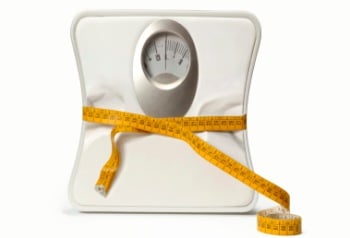
Every year on the 6th of May the world is celebrating International No Diet Day. This is one day of the year when you should take time from whatever crazy diet plan you are following and instead listen to your body's unique hunger and satiety needs.
International No Diet Day (INDD) was founded in 1992 by Mary Evans Young, director of the British anti-diet campaign Diet Breakers, after seeing two more tragic diet-related news events and deciding "enough is enough".
The first was seeing a television programme where women were having their stomachs stapled. One woman had split the staples and was in for her third op[eration]. And then a young girl of 15 committed suicide because "she couldn't cope with being fat".
"She was size 14 (12 in the US). I decided somebody had to stand up and try to stop this bloody madness and in the absence of anybody else, I decided it would be me," Evans says. "So I sent out a press release titled 'Fat Woman Bites Back'... and got some media attention."
"I was desperate to keep the anti-diet/size acceptance concept in the public eye. So, without really thinking about it, at the end of a live TV interview I said, 'Don't forget to celebrate No Diet Day.' ...Having declared it on prime-time national TV, I then set about organising a picnic in Hyde Park. Alas it rained, so we adjourned to my living room instead," Evans says.
Around the globe
From a picnic in her living room, INND has now spread around the globe.
Since 1993, INDD has been celebrated in Australia, Canada, England, Germany, New Zealand, Norway, Russia, across the United States and since 2006 also in South Africa.
Consider the following:
- The average American woman is 1,63 m, weighs 63,5 kg, and wears a size 14 dress.
- The "ideal" woman – portrayed by models, Miss America, Barbie dolls, and screen actresses – is 1,7 m, weighs 45,4 kg, and wears a size 8.
- One-third of all American women wear a size 16 or larger.
- 75% of American women are dissatisfied with their appearance.
- More than 50% of American women are on a diet at any one time and over 66% of them are dissatisfied with their bodies.
- Between 90% and 99% of reducing diets fail to produce permanent weight loss.
- Two-thirds of dieters regain the weight within one year. Virtually all regain it within five years.
- The diet industry (diet foods, diet programmes, diet drugs etc.) takes in over $40 billion each year, and is still growing.
- Quick-weight-loss schemes are among the most common consumer frauds, and diet programmes have the highest customer dissatisfaction of any service industry.
- Young girls are more afraid of becoming fat than they are of nuclear war, cancer, or losing their parents. Fifty percent of nine-year-old girls and 80% of 10-year-old girls have dieted.
- 90% of high school girls diet regularly, even though only between 10% and 15% are over the weight recommended by the standard height-weight charts.
- Anorexia has the highest mortality rate (up to 20%) of any psychiatric diagnosis.
- Girls develop eating and self-image problems before drug or alcohol problems. There are drug and alcohol programmes in almost every school, but no eating disorder programmes.
INDD is a day to:
- Take a day off from whatever crazy diet plan you are following and instead honour listening to, respecting and responding to your body's unique hunger and satiety needs.
- Celebrate the beauty and diversity of ALL our natural sizes and shapes
- Affirm everyBODY's right to health, fitness, and emotional well-being
- Declare a personal one-day moratorium on diet/weight obsession
- Learn the facts about weight-loss dieting, health, and body size
- Recognise how dieting perpetuates violence against women
- Honour the victims of eating disorders and weight-loss surgery
- Help end weight discrimination, sizism and fatphobia
Wear your light blue ribbon and take the pledge:
- That I will not diet for one day, on May 6, International No Diet Day (INDD).
- Instead of trying to change my body to fit someone else's standards, I will accept myself just as I am.
- I will feed myself if I'm hungry.
- I will feel no shame or guilt about my size or about eating.
- I will think about whether dieting has improved my health and well-being or not.
- And I will try to do at least one thing I have been putting off "until I lose weight".
(Source: Mind-over-fatter)
- (Birgit Ottermann, Health24, updated May 2011)
Read more:
Do you feel guilty everytime you eat?
The psychology of food cravings
When ads entice you to eat
What is a 'balanced diet'?




 Publications
Publications
 Partners
Partners














